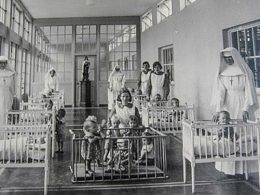John Maguire was the Unite the Union Convenor at the Visteon plant in Belfast before it closed in 2009. He played a leading role in the occupation of the plant which secured better redundancy packages for the workers. He has now written a play about the occupation which is due to premiere in Belfast in November. Here, John speaks to socialistparty.net about his upcoming play.
“After the closure, I just felt that our story needed to be told and that’s how the play came about. Too often the struggles of working people don’t get recorded and the lessons and heroism of those involved is forgotten.
We were workers fighting to save our jobs and when that wasn’t on the cards we fought for a better deal. I wanted to write this play to record what we did and the support we received. So much happened and so quickly, we were being told to leave the plant, leave our jobs – empty handed. We were offered only statutory redundancy and they wanted to steal our pensions. Some of the workers standing there that day had worked in the plant for decades and they were being given six minutes notice to leave!
“It was a disgusting insult, instead of walking we held our ground and began an occupation. Visteon workers in Basildon and Enfield had been forced out that day following the same announcement but they quickly joined with us and began a round the clock protest at the gates of their plants.
“In writing the play the hardest thing for me was that we had to tell the story through a few characters and could not do justice to everyone who took part in the occupation on an individual basis. When the occupation started everyone seemed to slip into a role which they continued throughout the dispute. The person that spent 24/7 peeling potatoes in the kitchen played an equally important role as the people who led the dispute but unfortunately we cannot show them individually on the stage. That does not make their contribution any less.
“I actually initially asked Martin Lynch to write the play, however, Martin sent me to Waterstones and told me to buy a book called “The Crafty Art Of Playmaking”, which I did! I sent Martin a few drafts early on which he edited and eventually I felt that what I had wrote was good enough to be produced. I was very lucky when John Dunne of the londonirishtheatre company who I had contacted, replied and was into the story big-time. Having a director and company on board who sympathised with the workers struggle was paramount to any company producing this play, and John Dunne and his company were a perfect fit. I owe a depth of gratitude to both John and Martin for their support.
“I hope people will enjoy the play but I also want it to show that when there is solidarity between workers anything can be achieved. Just once again in writing this play I want to thank Unite and the other unions, the Socialist Party and other politicians who worked with the help of a strong community and above all the workers in the three factories to bring about a moral victory and greatly enhanced redundancy terms for all involved”.












